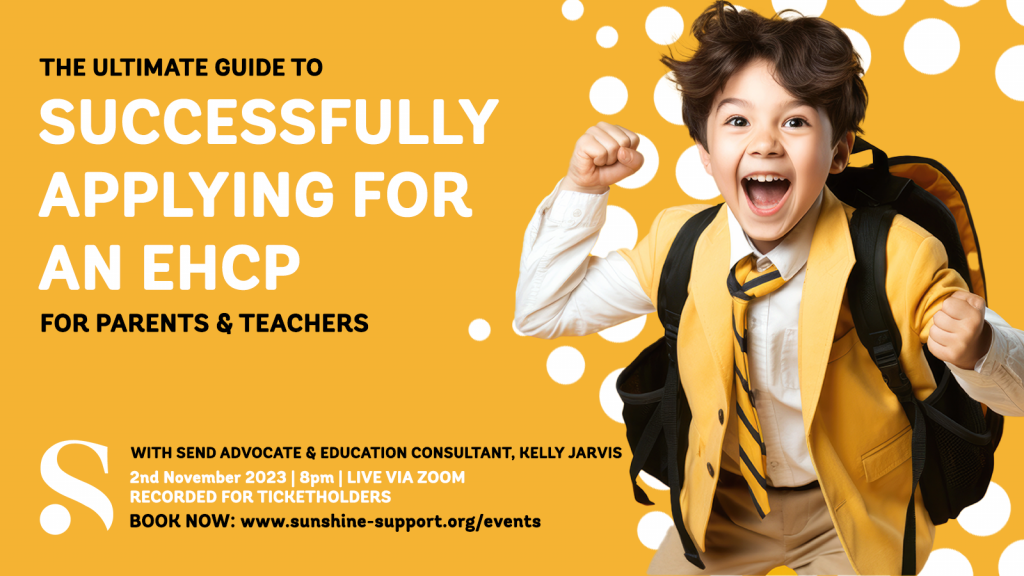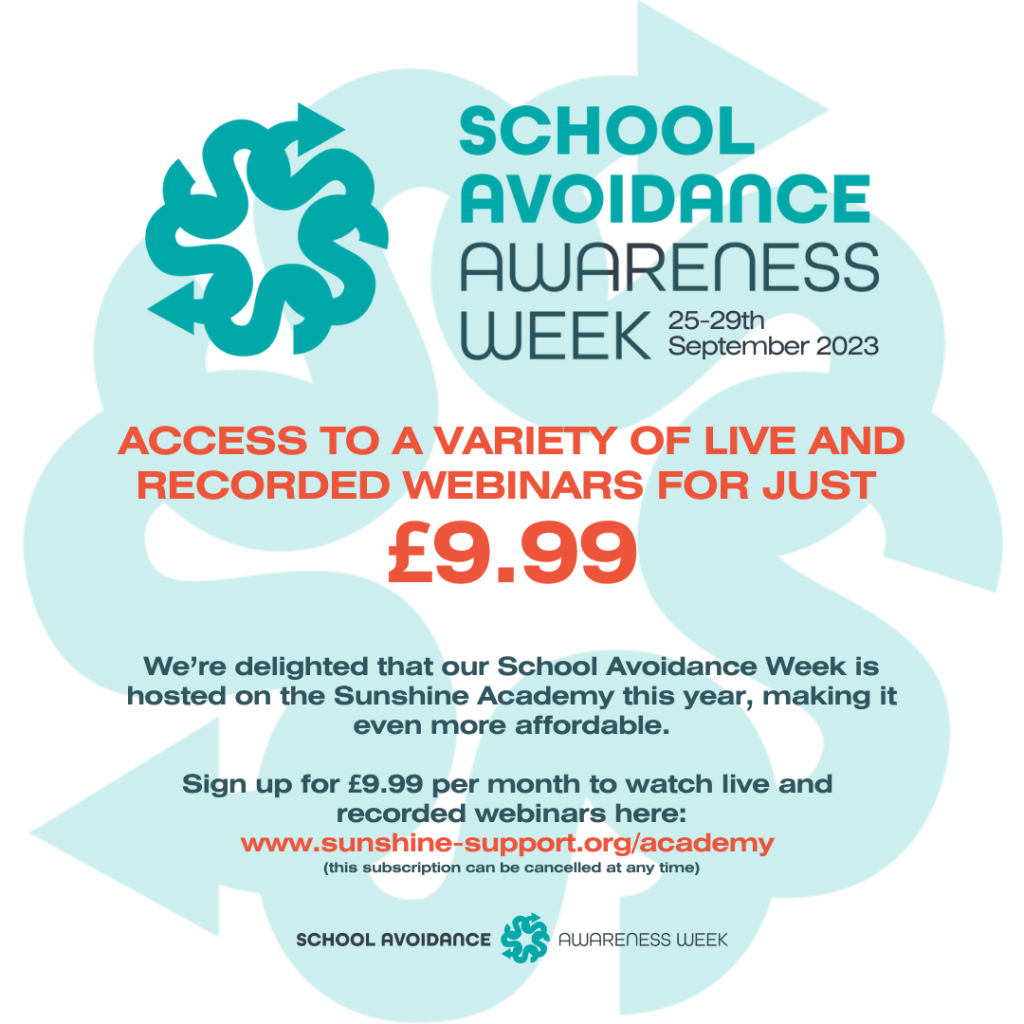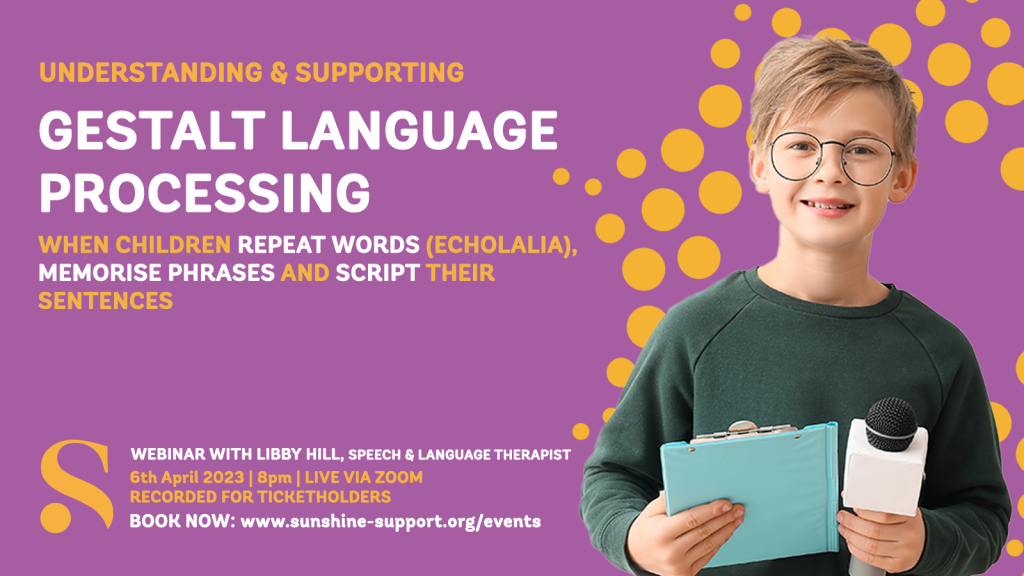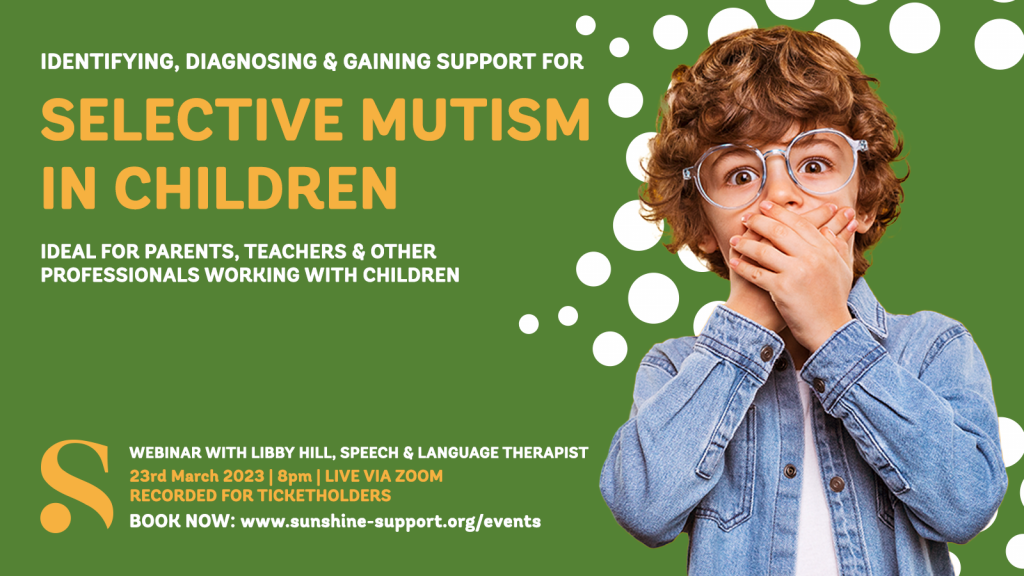The importance of being diagnosed early on, owning your identity and understanding yourself and others.
Last week Sunshine Support’s very own Chrissa Wadlow, our leader and the embodiment of all thing’s sunshine went live on Facebook to talk about the importance of getting a diagnosis early on in life. The 50-minute-long event covered an array of reasons and difficulties but one aspect she spoke about which I think often goes unconsidered is the importance of owning an identity.
“In my personal opinion and professional opinion, depriving a child of their identity is what we are doing to our children if we do not get them a diagnosis. Ask any adult who was diagnosed late with autism, the majority say they would have much preferred they’d been diagnosed earlier in life, and they could have come to terms with it”, she explained.
As someone who was only diagnosed with ADHD at age 21, I have to agree with Chrissa. Although in my own circumstances I was not denied a diagnosis, my ADHD was simply just missed, I would have understood myself a lot better and potentially avoided traumas if I had been diagnosed at a younger age.

Knowing who you are, so you don’t hide who you are
Masking is a sort of camouflage where a person mimics behaviours that are “typical” in order to conceal behaviours that are considered “atypical”. It is one of the most talked about reasons why differences such as Autism and ADHD go unrecognised in children and young people and even adults.
Of course masking does makes things a little more difficult to recognise signs in a child or young person and potentially getting them a diagnosis. However, it still stands that the earlier they get a diagnosis the earlier they will be able to understand themselves and who they are.
Masking simply encourages feelings of shame and guilt caused by being misunderstood and inevitably causes trauma. A diagnosis is a step in the right direction towards self-acceptance and empowerment.
Getting the Right Support
A diagnosis is not always needed to obtain the right support. However, it can be a gateway into easily accessing that support and a helpful way to ensure people understand the needs and demands that come with the specific diagnosis.
From my own personal experience, the beginning of university (pre-diagnosis) I struggled to get access to any extra support that I needed despite having a full educational assessment report from a private educational psychologist. After I was officially diagnosed, I was given access to a mentor, private study spaces, extra equipment and a whole variety of other services.
Of course, some people may argue that it is unfair for me to have extra support. However, what is more unfair, giving a person extra support or denying someone the support they need to be able to work to the same standard as everyone else?
A diagnosis is a way to empower someone to achieve the best they can!
The Fear Factor
Of course, I think many if not all parents are fearful of their child being different, being judged, having additional needs. However, as Chrissa went on to say, “without a formal diagnosis a lot of our children get a moral diagnosis and by that what I mean is they get called “the troubled child”, “the naughty child”, the “difficult” or “stubborn” or “manipulative child” and lots of other awful things”.
It is true that any form of SEND/ALN do come with their own negative connotations and misconceptions, but I think it is okay to say that at least with a diagnosis there is a better chance of that child being understood and accepted…
Are we putting children at risk?
This may seem a harsh message to deliver, but by denying children to right to understand who they are we are potentially putting them at risk of experiencing poor mental health later on in life. There is a mammoth amount of research into this and the results are SHOCKING.
Chrissa went on to explain, “ADHD and Autism for instance, typically in adults gets picked up when a person has a mental health crisis. So, you tend to find, and we know an awful lot of these cases, whereby a parent or an adult has had a mental health crash, it could be that they are sectioned. It is not that they are mentally unwell. They probably are because they have had their needs unmet but not because of their neurodiversity. Essentially, their neurodiversity has not been picked up and that leads to very very poor mental health”.
It Should Not Have to Be This Way
Like I write about quite frequently, it should not have to be this way. People should not have to be labelled to be accepted, supported and enabled to function in the same way everyone else does. In an ideal world education would be completely people centred and easily adaptable to the unique needs of each individual person. However, until that day FINALLY arrives, we have to use the system already in place to best support children and young people. Empower, understand and accept!







